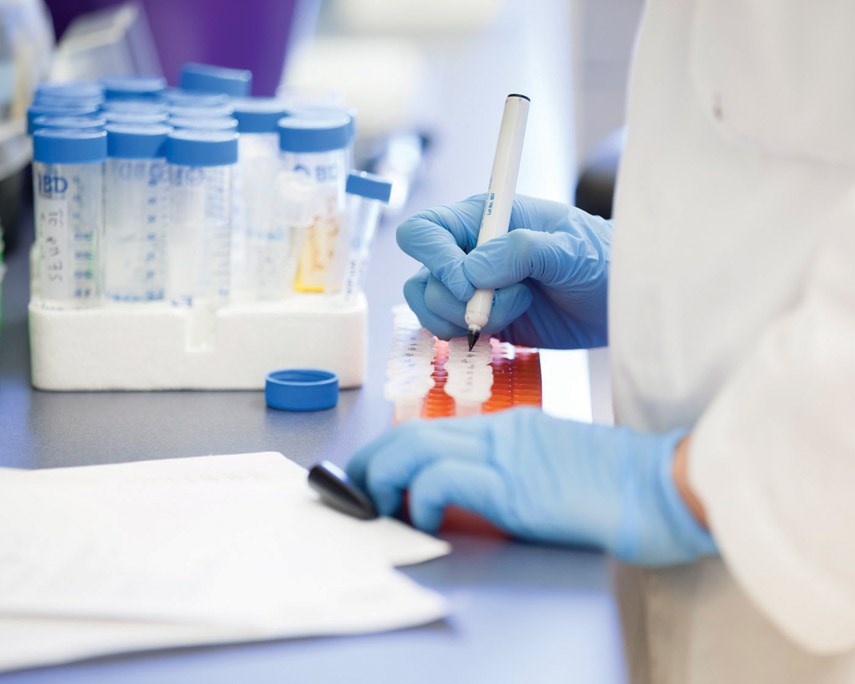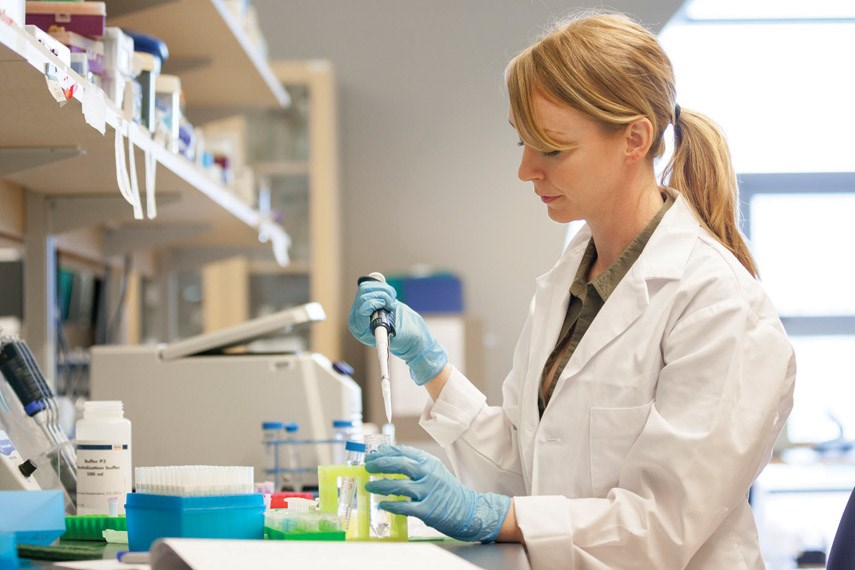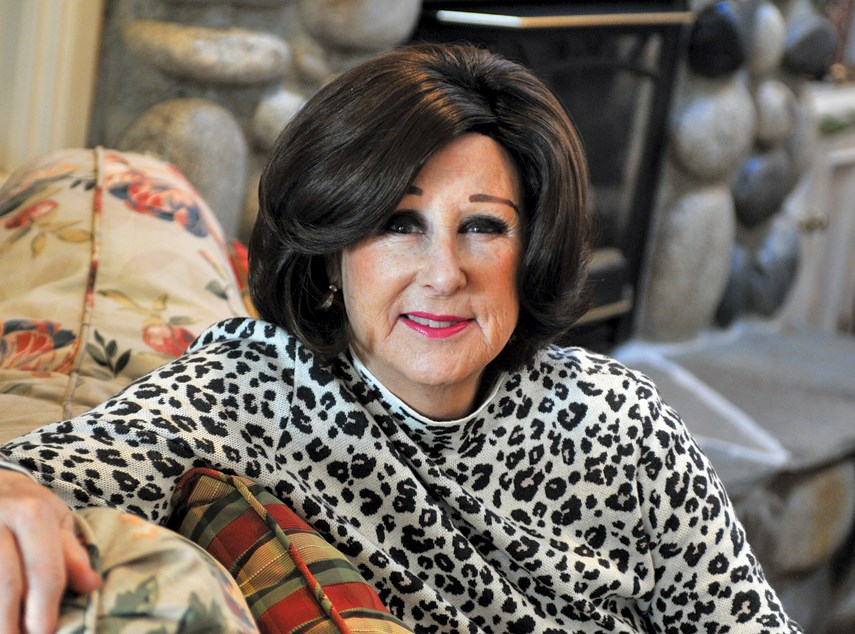Candy Woodworth knows sheâs won the lottery.
In the past five years, sheâs seen a daughter get married and celebrate the births of two grandchildren.
But for a while, whether the West Â鶹´«Ã½Ó³»grandmother would be around to mark those milestones was far from certain.
Six years ago, Woodworth was a busy 65-year-old, looking after her first grandchild while her daughters took care of the family business.
It was during a Pilates class when she was lying on her stomach that she first noticed something odd â an uncomfortable feeling in her lower abdomen. Woodworth didnât think much of it, but when she felt it again at next weekâs class, she made an appointment to see her doctor, who sent her for an ultrasound.
When she got back home, the phone was ringing before she even had her coat off, telling her to come to her doctorâs office right away.
There she got the news that she had ovarian cancer.
According to the BC Cancer Agency, over 300 women in B.C. will be diagnosed with this year. Itâs not nearly as common as breast cancer â women have about a one in 70 lifetime chance of getting ovarian cancer â but the prognosis can be far more serious.
âYou just donât feel anything,â said Woodworth. âThatâs the difficult thing with ovarian cancer.â
Because there is no way to screen for ovarian cancer, and the disease is usually without symptoms until at an advanced stage, effective treatment is often a challenge.
âWe have treatments that are very likely to cause the cancer to regress and improve but thereâs a very high risk of recurrence,â said Dr. Anna Tinker, a medical oncologist at BC Cancer who is one of the leading experts in gynecological cancers and who worked on Woodworthâs case.
Woodworth knew she was facing a serious diagnosis. So she did some research and was referred to the expert team that specializes in gynecological cancer at Â鶹´«Ã½Ó³»General Hospital, headed by
Woodworth had surgery to remove the tumour from her abdomen, which was confirmed as a high-grade Stage 3 aggressive cancer.
But her journey was only just beginning.
For the next four and a half months, Woodworth had 18 rounds of chemotherapy. âAfter my third week I literally crawled on my hands and knees into the chemo clinic,â she said. âI was literally throwing up as I was sitting in the chair.â
She credits her support team of her husband and three daughters for getting her through it. And the chemotherapy worked â at first.
But 18 months later, the cancer was back, with a tumour on her colon. She had another surgery.
Throughout the process, âMy attitude was always âLetâs get in there. Letâs get the job done,ââ she said.

When the tumour returned again in the same place, six months later, Woodworthâs doctors signed her up for an experimental research program, the program, run by a team of doctors and researchers at the BC Cancer Agency.
The program â which is usually only open to patients after standard treatments have been tried â takes a novel approach to cancer, looking for genetic mutations in a patientâs tumour for clues to whatâs causing the cancer to grow, and with that, a possible treatment.
In Woodworthâs case, the analysis showed her tumour had a signature similar to that seen when a BCRA gene mutation is present â more usually associated with some types of breast cancer, said Tinker.
In early 2017 Woodworthâs results were matched with an experimental drug, Olaprib Lynparza.
In Woodworthâs case, the drug worked. Sheâs now been on it for two and a half years with no side effects and no recurrence in her cancer.
The 12 capsules she takes every day â down from the number she started on â have literally saved her life.
âIâm so grateful for every day,â said Woodworth. âI donât think the public realizes the scientists we have here in Vancouver.â

Woodworth is among the more dramatic success stories to come out of the personalized genomic research project, falling into a small group of âsuper responderâ patients.
Others include a Langley woman whose metastatic breast cancer was beaten back by a drug commonly used to treat diabetes, in addition to hormone treatment.
Another Metro Â鶹´«Ã½Ó³»woman was saved when scientists discovered her advanced colon cancer had a protein that responded to blood pressure medication.
Since the program started in 2012, 1,136 patients, including 123 children, have been enrolled in the program.
Patients who take part need to understand the process is experimental, said Tinker. While helpful new information is gleaned in about 80 per cent of cases, the result is not always as dramatic as it was in Woodworthâs case and not all cancer patients are helped by the genome analysis.
In some patients, no helpful mutations are discovered that can be used as clues to treatment and in some cases, no drugs are a match.
Cancer patients start new treatments as a result of their genome results about 40 per cent of the time.
Ideally, patients who are matched with treatments can be enrolled in clinical trials that make expensive drugs available to them free of charge, said Tinker.
But thatâs not the always the case.
Woodworth knows sheâs lucky. âI knew what I was up against,â she said, but she remained stubbornly optimistic, describing herself as a âglass half full kind of person.â
These days, Woodworth â who recently celebrated her 70th birthday â takes delight in spending time with her grandkids.
âI canât let a day go by without stopping by for a quick hug,â she said. âI donât stay around and clean my house. I get out there.â
âI donât take anything for granted. Thatâs the one thing you take away when you feel that mortality. You have to live every day the best that you can.â
She hopes stories like hers will lead to money for research that will benefit other cancer patients.
The research at the Personalized Onco-Genome program is funded by approximately $22.7 million from the BC Cancer Foundation, largely raised through philanthropic donations, as well as by research grants, particularly through the Canada Foundation for Innovation.
âHopefully theyâll find more [information on how cancers behave], and more people will survive,â said Woodworth. âThatâs what I want for everyone. There is hope out there.â
Ìý
To find out how to donate to the research funded by the BC Cancer Foundation, including the Personalized Onco-Genomics program,
To find out how to donate to the VGH/UBC Hospital Foundation, which benefits programs including the Ovcare research team examining gynecological cancers,
To view a CBC Nature of Things documentary on the Personalized Onco-Genomics program, which aired on the network in February 2017,



